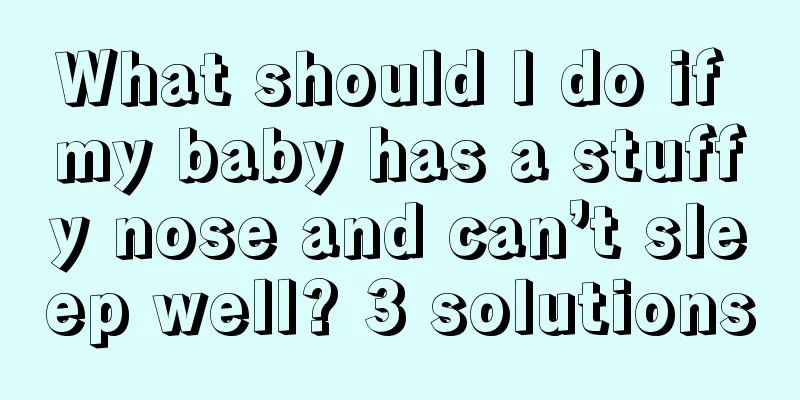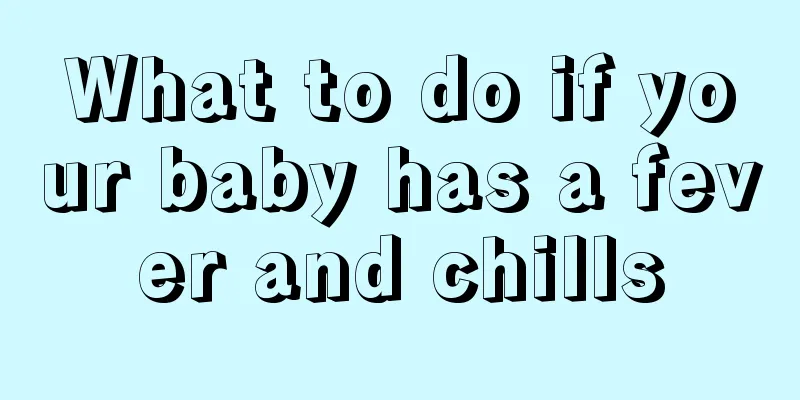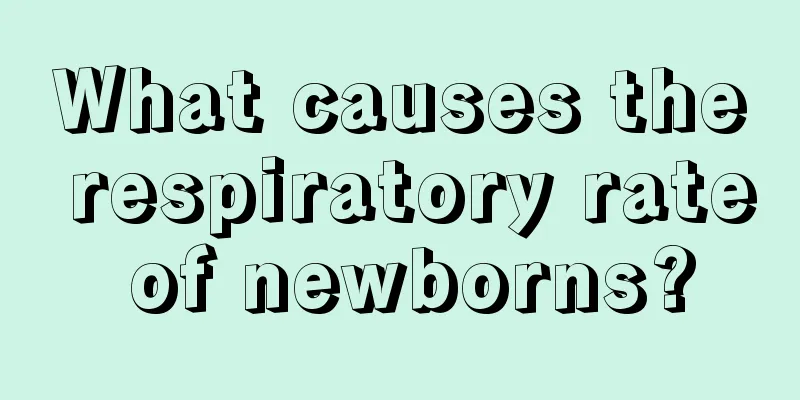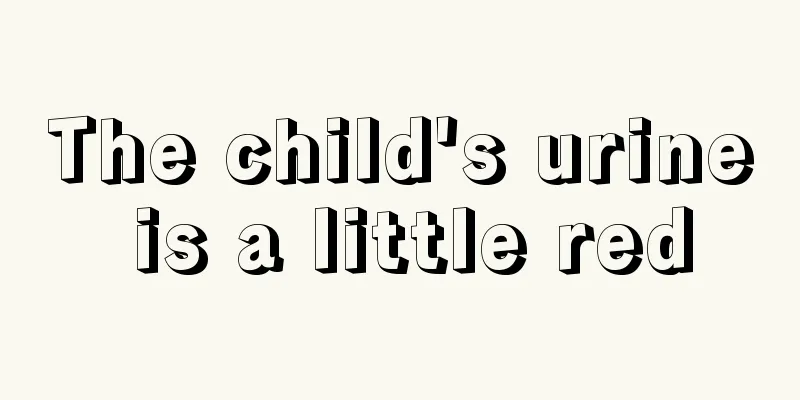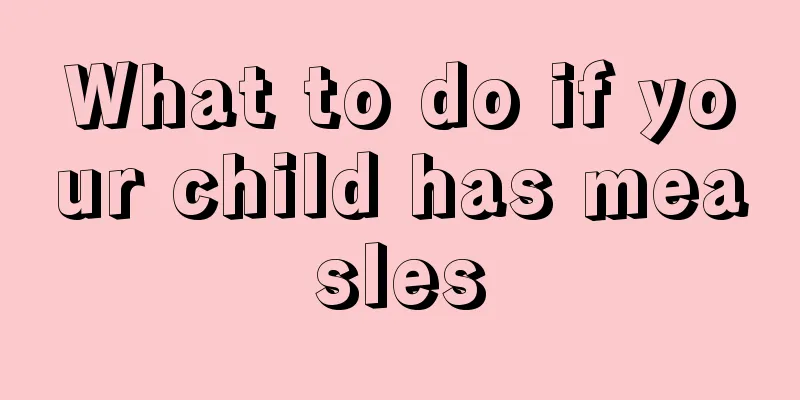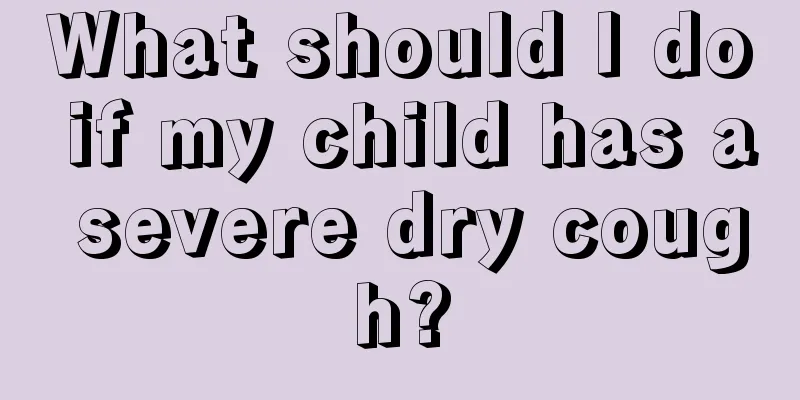What are the symptoms of baby teething?
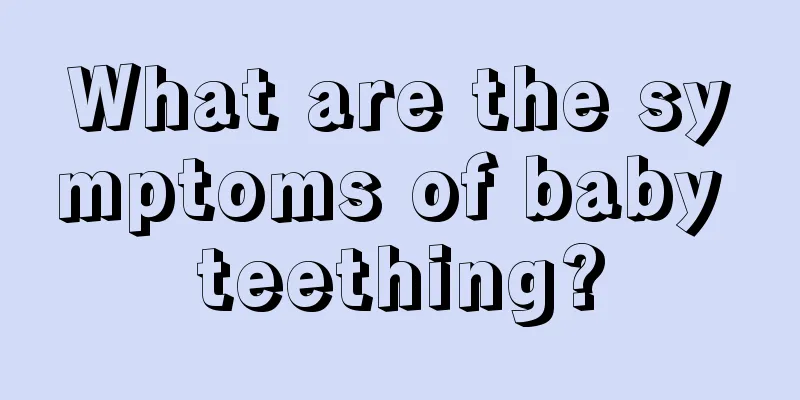
|
Babies have different behaviors at each stage of growth and development. The first time they turn over, the first time they crawl, the first time they grow teeth, every little change in the child makes parents particularly happy and expectant. Most babies' first deciduous teeth usually grow out around 6 months. So what are the symptoms when babies are growing teeth? The following is a detailed introduction for friends. Moms can read the article carefully. 1/5 Sucking fingers and biting nipples. Babies in the teething period will like to chew things because their gums are uncomfortable. It usually manifests itself as a love of biting the mother's nipples, pacifiers and their own fingers. This is because when the teeth erupt, the gums are stimulated to become congested and edematous, and the baby's gums become itchy and other discomforts. Relieve the itchy discomfort by biting the nipple or sucking the fingers. During this period, you can give your baby clean gauze, rubber stick toys or harder food, and let your baby chew these things to relieve the discomfort of itchy gums. 2/5 Increased drooling. When teething, your baby's saliva will increase significantly. At the beginning, the baby's salivary glands are underdeveloped and the amount of saliva is small. When teeth start to erupt at 6-7 months, the eruption of teeth makes the gums itchy and the saliva secretion increases significantly, so the child has a lot of saliva when teething. Because babies' oral cavity is not deep enough, their nervous system development and swallowing reflex are poor, and their ability to control the flow of saliva in the mouth is poor, they often drool. In this case, you should wipe it dry in time to keep the skin of your lower lip dry and clean. As you age and your teeth erupt, drooling will gradually disappear.3/5 tooth eruption hematoma. If your baby's gums are swollen, it may be that the baby is about to teethe. These swollen areas mainly appear at the incisal edge or cingulate surface of the teeth that are about to erupt. The surface is bluish-purple and the swelling ranges vary in size. The swelling is caused by the accumulation of blood under the gums when the tooth breaks through the dental follicle during tooth eruption. It looks like a small hematoma, called eruption hematoma. Generally there are no subjective symptoms, no special treatment is required, and it can be absorbed on its own. 4/5 Irritable and restless, and sleep erratically. During teething, babies will feel uncomfortable, so they often cry and become irritable. Especially the closer to teething, the more obvious this symptom is. When sleeping at night, the baby will also sleep restlessly and may often wake up in the middle of the night.5/5 Increased body temperature. Teething can raise your baby's body temperature and may even cause a fever. In addition, babies may often have loose stools during teething. |
<<: My baby has not grown any teeth at 11 months old
>>: What is the reason for the baby's teeth growing quickly?
Recommend
Why does my child's butt smell?
As a baby grows, various problems will always ari...
Are febrile seizures serious?
Convulsion is still a very dangerous disease for ...
Red blood clots in newborn's eyes
If there are red blood clots in the eyes of a new...
Causes and treatment of vomiting and fever in children
I believe everyone knows that children are prone ...
The consequences of not getting vaccinated
We all know that when a child is born, the doctor...
What are the symptoms of precocious puberty in boys?
While people's living standards have greatly ...
My baby's hand is swollen because of something biting him.
Summer is the season with the most mosquitoes. Ba...
What causes abdominal distension and vomiting in children?
Friends who have babies at home are worried about...
Causes of stomach pain in girls
There are many reasons why girls experience stoma...
How often do children change their teeth?
Babies usually start to grow full teeth between t...
How to deal with heat rash on baby's face
Heat rash, commonly known as prickly heat, is cau...
What should I do if my child keeps blinking? Parents, please remember these measures
Everyone has the habit of blinking, but some chil...
How to deal with children who don’t like to eat?
Eating is a very important aspect during childhoo...
Symptoms of hand, foot and mouth disease on the fourth day
Hand, foot and mouth disease is a relatively seri...
Symptoms of umbilical cord infection in newborns
The resistance of newborns mostly comes from the ...


